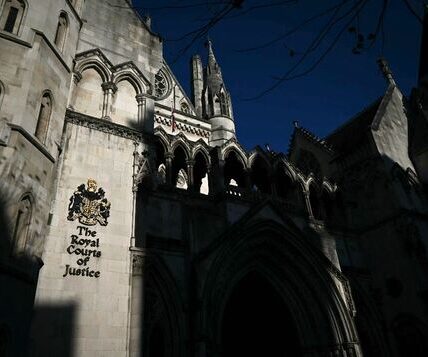Deputy Prime Minister Angela Rayner is preparing to unveil sweeping reforms
Council tax bills in the parts of the south are set to rise under controversial Labour plans to shift millions in funding to northern towns and cities.
The changes are designed to tackle anomalies that mean households with relatively modest homes in the north currently pay higher council tax than applies to multi-million pound mansions in the south.
Deputy Prime Minister Angela Rayner is preparing to unveil sweeping reforms that will see government grants redistributed in favour of areas deemed to have “higher needs” — with wealthier boroughs in London and the Home Counties left facing a painful squeeze.
The radical overhaul, to be announced on Friday, is being branded by critics as a “deeply divisive” move that risks inflaming tensions between North and South, city and shire.
Rayner said the existing funding system had “broken down” and claimed it was “unfair” that some of Britain’s poorest communities are “being asked to pay more for worse services”.

Deputy Prime Minister Angela Rayner is preparing to unveil sweeping reforms (Image: Getty)
She pointed to stark disparities, such as a typical three-bedroom semi in Hartlepool attracting a higher council tax bill than a ten-bedroom, £80 million mansion in Westminster.
“People are unfairly being asked to pay more for worse services,” she said.
The shake-up will involve a new Whitehall formula that redistributes grants based on factors such as poverty levels, age demographics and local housing stock. It is expected to deliver a financial windfall to towns across the North and Midlands, while stripping millions from better-off southern boroughs that have kept council tax low for years.
As a result wealthier local authorities could be forced to hike bills — or slash public services — to plug the shortfall.
A senior local government source, briefed on the plans, warned: “There is no doubt at all that it is going to be polarising. For a lot of councils in richer parts of the country, the current system works quite well for them and they’re going to lose funding.”
The Institute for Fiscal Studies (IFS) said the changes were long overdue but would trigger “big” consequences.
“We would expect urban areas in the Midlands and north to benefit,” said David Phillips of the IFS. “But the Westminsters and Wandsworths of this world, which set very low council tax, will lose.
“If the referendum limit remains at 5 per cent they will be stuck, so the government needs to give them some flexibility.”
Currently, councils are barred from raising council tax by more than 5 per cent without a public vote — a rule Chancellor Rachel Reeves has vowed to keep in place. However, insiders admit more authorities are likely to seek special permission to breach the cap.
To soften the blow, ministers are promising temporary protections for areas losing the most, as well as additional support for rural and coastal communities facing higher transport costs.
Even so, some town halls are said to be bracing for a financial “bloodbath”, with fears of a wave of bankruptcies unless further safeguards are introduced.
Under the new rules, grant allocations will also be based on a notional model where all councils are assumed to charge the same rate of tax — a move that punishes areas with historically low bills.
Phillips added: “Given the focus on equalising for council tax bases, which are much stronger in these leafier places… you’d expect leafy areas to lose out and the more deprived areas to benefit.”
He warned that Labour risked undermining local ambition if it overreached with redistribution: “If the government goes to the maximalist side… it is making a trade-off to prioritise need over incentives for councils to tackle need and grow their council tax base.”
The Ministry for Housing, Communities and Local Government insisted the aim was fairness.
“Some authorities are struggling to provide basic services whilst others are better off,” said a spokesman.
“Individual councils remain responsible for setting their own council tax levels each year, and the government is clear they should put taxpayers first.”
Officials added that the changes would stop the system “rewarding places that have been able to keep council tax levels low due to stronger tax bases”, and ensure “the same level of service regardless of their tax base”.
The latest row follows years of growing pressure on local services, with multiple councils declaring effective bankruptcy in recent months. Critics fear Labour’s plan, while well-intentioned, could simply shift the pain from one part of the country to another.
Losers of Labour’s Council Tax reform plan
Region – Expected Outcome
Westminster, Wandsworth – Likely lose grants, may need tax hikes or cuts
Surrey, Bucks, Herts – Face losing out under new funding formula
Winners of Labour’s Council Tax reform plan
Region – Expected Outcome
Hartlepool, Liverpool, Hull – Likely gain from higher grant allocations
Coastal & rural areas – May receive protection or extra weighting



